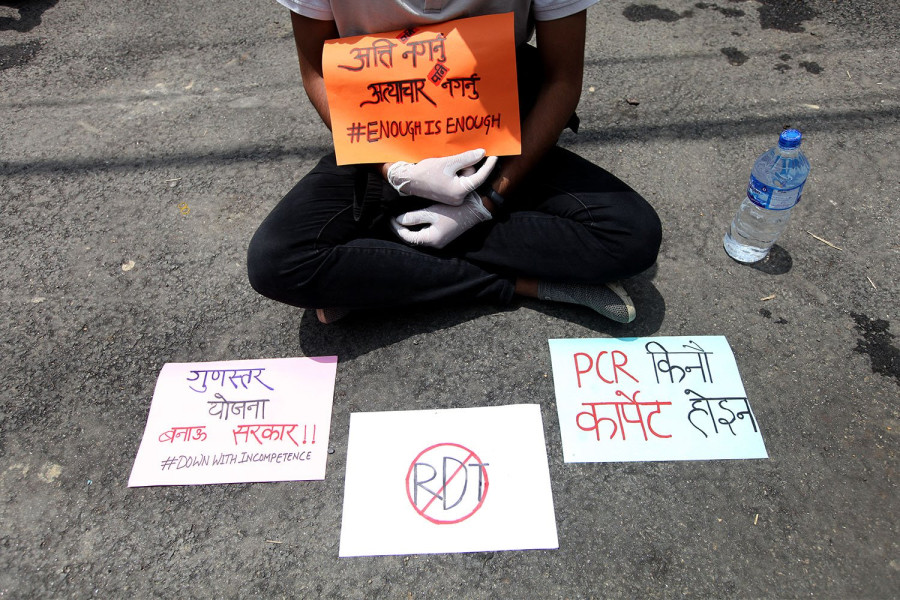Editorial
He gave hope
Alternative politics is not only possible but also necessary in our context.
The untimely demise of Ujwal Thapa, founder of the Bibeksheel Sajha Party, has rightly aggrieved a significant number of Nepalis, especially youths who shared his enthusiasm for alternative politics. A young entrepreneur-turned-politician, he was a mentor to many young entrepreneurs and was a regular sight at civic protests. He was without doubt the most well-known face of the nascent alternative political movement in the country. He was an icon for the young generation that likes to use emojis generously in their conversations, and harness the potential of social media to advance their cause.
The collective mourning we have seen in his demise is testimony to his popularity as well as the hope he gave to the young generation of Nepalis who are eager to see the way politics is practised in Nepal. The unprecedented interest citizens showed in collecting funds for his treatment even as he fought against the coronavirus showed how people care about leaders who care about the people. Thapa and his friends led protests that deviated from the tried and tested forms of protests practised by the mainstream political parties. At a time when politics has been used by leaders across the political spectrum just to make or break governments, Thapa and his friends showed that alternative politics was the way to go.
At 44 and just a decade into the political fray, he was still too young to go and had decades of political career ahead of him. In a way, he had not even "got there" as yet, having lost two elections he fought. His losses might mean that Nepali society loves people who champion alternative politics, but does not trust them enough. But Thapa’s electoral loss does in no way diminish the imperative of the alternative politics he stood for. Rather, his loss means that we are not yet politically aware enough to take his calls for alternative politics seriously. Alternatively, he and his fellow leaders could not make us understand the need to adopt alternative politics for transformative change. Or it could just be that the people understood the value of alternative politics, but still considered transforming mainstream politics to make it work for us.
The explanations for the electoral failure of the current strand of alternative political leadership can be varied, but what is certain is that alternative politics is very much a necessity in our context. And that does not mean the formation of just another political party that calls itself alternative, but a rethinking of what politics stands for and how it is conducted. For that, the "alternatives" should consider how they can foster an alternative way of advancing deliberative democracy and political culture. In that sense, even the mainstream political parties can evolve and bring into practice the ideals of transformative politics that alternative political forces advocate.
There is no denying that the current crop of leaders leading the alternative political movement have failed to show much promise of evolving as a formidable political force that can force mainstream politics to mend its ways. But the way alternative politics envisions the participation of citizens, not only as passive voters in the election but also as active advocates for their rights, choices and interests, is not an unattainable goal either.




 9.7°C Kathmandu
9.7°C Kathmandu














